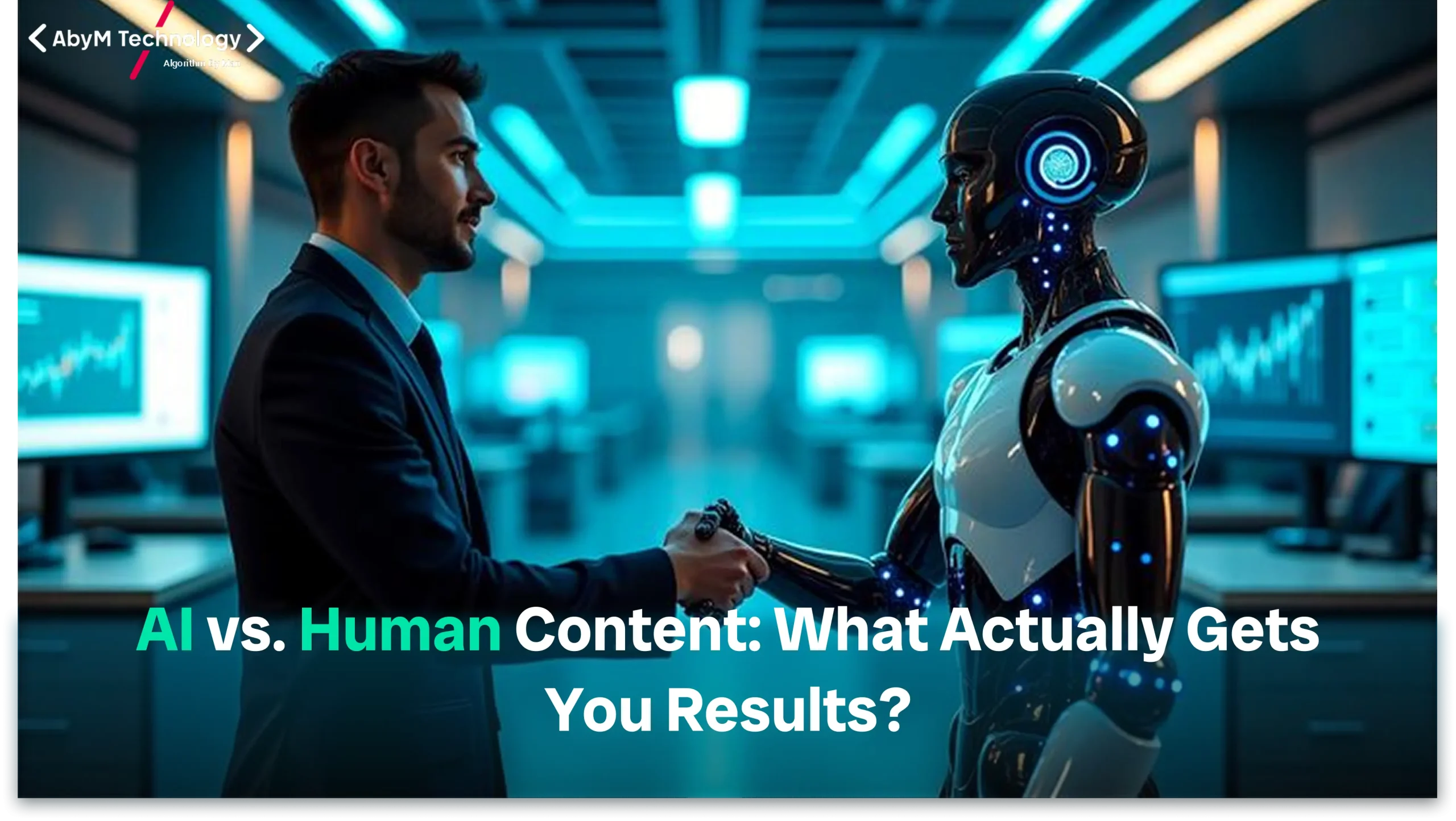AI vs. Human Content: What Actually Gets You Results?
blog » AI vs. Human Content: What Actually Gets You Results?

In the fast-evolving world of content marketing, one debate that stands out is whether AI-generated content or human-written content drives better results. With artificial intelligence (AI) rapidly transforming content creation, many businesses are faced with the decision of where to invest their resources. Is AI content really a game-changer, or does it fall short when it comes to truly engaging audiences and driving conversions?
This blog aims to dive into both sides of the argument, examining the advantages and limitations of AI vs. human-generated content and helping you determine which option best fits your business needs.
Table of Contents
ToggleThe Rise of AI in Content Creation
Artificial intelligence has revolutionized numerous industries, and content creation is no exception. AI tools, like OpenAI’s GPT, have emerged as powerful allies for marketers looking to streamline content production. These tools can generate articles, blogs, product descriptions, and even social media posts in a fraction of the time it would take a human writer.
Advantages of AI Content:
-
Speed and Efficiency: One of the biggest benefits of AI content is speed. It can generate hundreds of words in seconds, which can significantly increase content production without compromising deadlines.
-
Cost-Effective: For companies with tight budgets, AI content can be a more affordable alternative to hiring a team of writers. It reduces overhead costs associated with content creation.
-
Data-Driven: AI can analyze vast amounts of data to optimize content. By identifying trends, keywords, and user behavior, AI tools can craft highly targeted content designed for search engine optimization (SEO) and audience engagement.
Challenges with AI Content:
While AI can be a useful tool, it’s not without limitations:
-
Lack of Emotion and Creativity: AI content often lacks the personal touch that comes with human creativity. It can be formulaic and may not resonate with audiences on an emotional level.
-
Limited Context Understanding: AI might struggle to grasp the subtle nuances of complex topics. This can result in content that feels disjointed or lacks depth, which is essential for establishing authority in niche industries.
-
Potential for Plagiarism: Though AI generates original content, it relies heavily on existing data. There’s a risk of accidental duplication or content that sounds overly similar to other sources.
Why Human Content Still Holds the Edge
Despite the rise of AI, human-written content continues to dominate the content landscape, especially when it comes to delivering long-term results.

